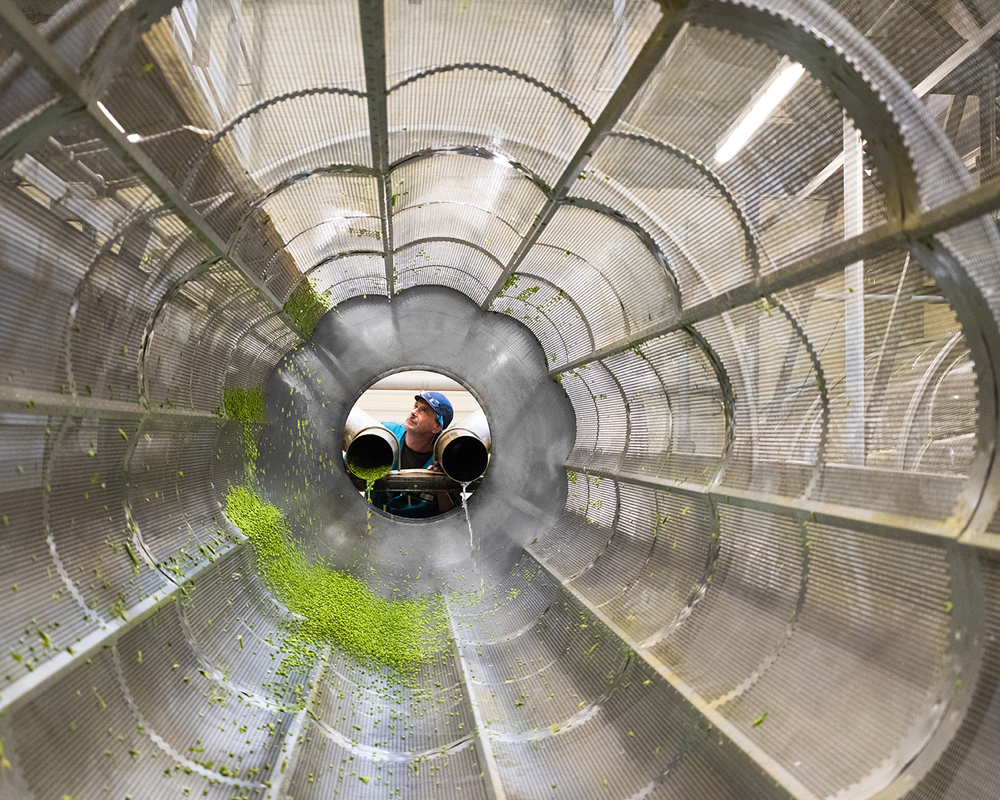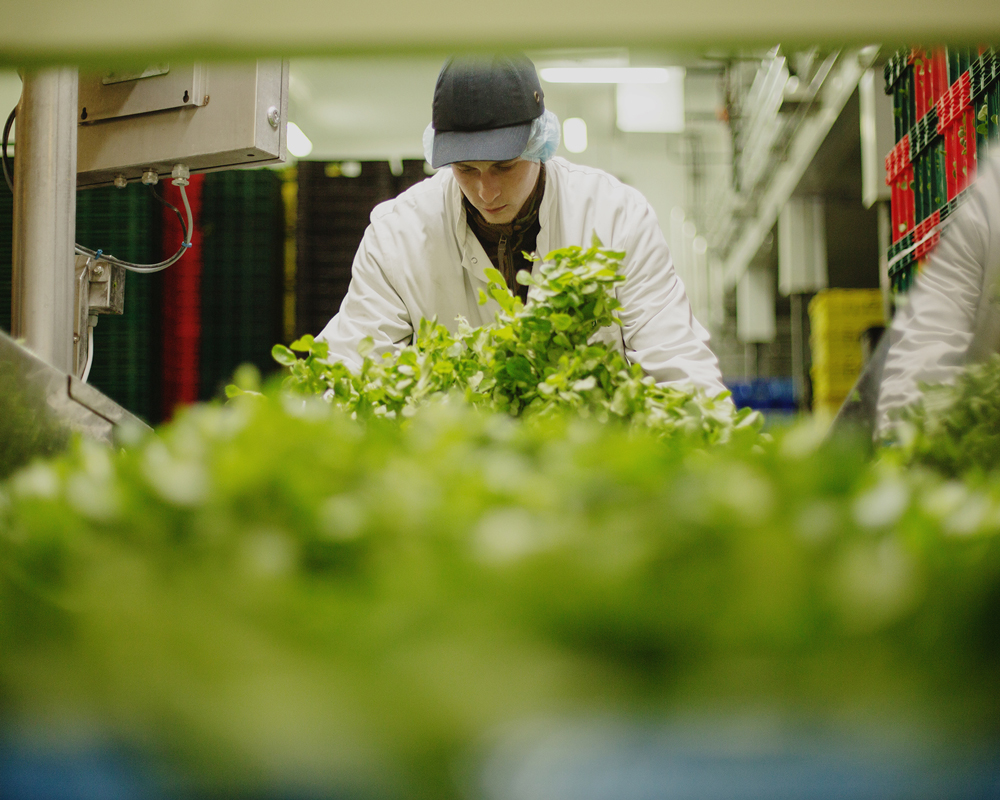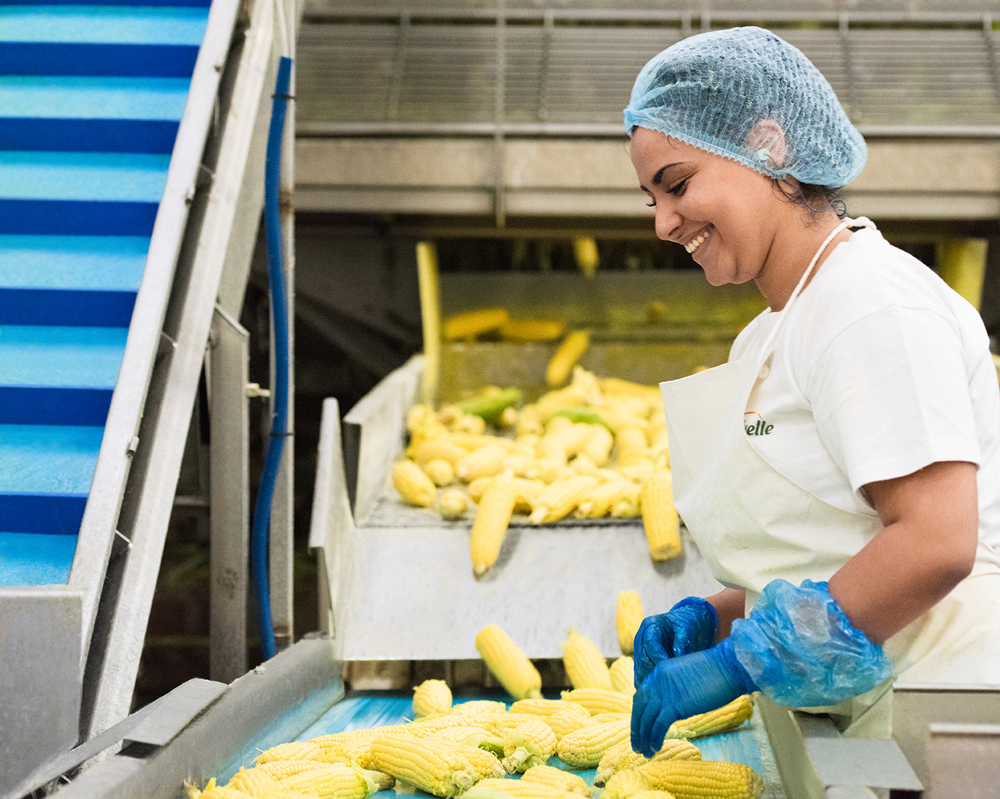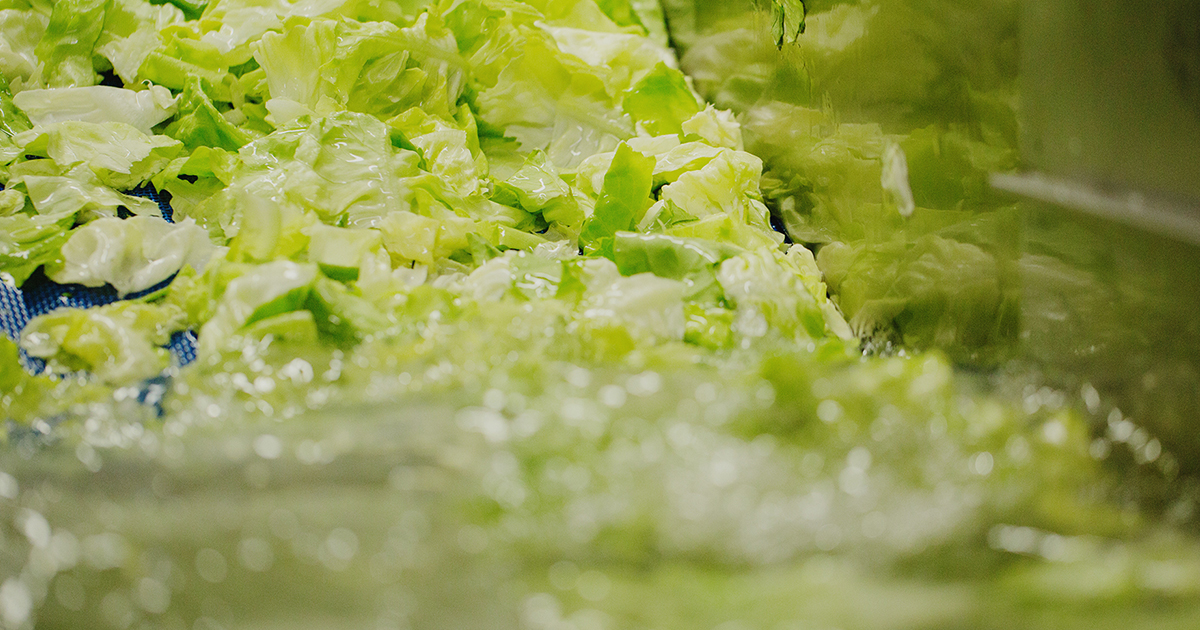Published at 2020, March 23th
To mark World Water Day, we take a closer look at this vital resource, one which is more valuable than ever for the planet and all life on it. With Earth’s resources threatened by global warming, water is a key factor both economically and politically. Without water, there’d be no life. More than any other, it’s absolutely vital that we save this resource to avoid any shortages and to ensure that everyone can access it.
Water is vital to agricultural and food production activities. It’s important to use it carefully throughout the whole production cycle to preserve this precious resource, thereby reducing the impact on the environment. We are seeing increasing numbers of initiatives in this sector. Here, we take a look at some concrete examples of such commitments by the Bonduelle Group.
At Bonduelle, sustainable water management has been taken very seriously for many years now. Water consumption has fallen by 16% over the last decade, we use on average 11 litres of water to manufacture one kilo of finished products and our plants mostly have their own water purifying facilities. Managing and reducing the consumption of this resource are key challenges leading the company to introduce best practices as part of the B! Pact and its Planet aspect. We take a closer look at these commitments, using the example of three Bonduelle plants.
Bonduelle recycles water from the plants, making optimal use of this resource
The production process for canned food involves a sterilisation stage to destroy any micro-organisms which may make the product unfit for consumption. To do so, the canned food is subject to a temperature of 130 °C (266 °F), making it possible to cook the vegetables but also to preserve them. It’s then necessary to cool the canned food down, which is the stage consuming most water.

The Bonduelle plant at Saint-Césaire in Canada has found a solution to save water during the process. As the water does not become wastewater after having been applied once to the canned food, it can potentially be used several times. The installation of recirculation loops in this plant has therefore made it possible to use the same water several times in the cooling process for canned food. This initiative has made it possible to save 12% of the water consumed, i.e. 30 million litres per annum.
Bonduelle reduces the water consumed its plants with a simple solution
Water is a resource used in practically every stage of the vegetable preservation process. During the cleaning process for our bagged salads, a great deal of water is used to clean the lettuce leaves for example.

The Florence plant in the United States decided to focus on potential areas of wastage throughout the process, in order to measure them and develop appropriate solutions. These solutions focused on two aspects: raising awareness among all team members of the importance of water and replacing manual controls with automatic ones, allowing for greater precision. As a result, the plant was able to reduce the quantity of water used for each lettuce cleaned. A small and seemingly insignificant change which nevertheless made it possible to reduce water consumption by a quarter in a year, saving 130 million litres of water in this plant. Another benefit is that as the bagged salads have already been washed, they don’t need to be rinsed again by the end consumer, which also makes it possible to avoid wasting water during the end use of the product. All of our bagged salads are already washed.
Bonduelle uses the water in its plants to encourage local development
The water used by the Bonduelle plants is cleaned in water purifying facilities before being returned to the natural environment. 97% of the water is reused or cleaned then discharged in this way, with the remaining 3% being water considered sufficiently clean to be discharged without cleaning. Of the 97%, 71% of the water is cleaned in Bonduelle biological water purifying plants and 5% in other water treatment facilities. Finally, 21% is used in controlled agricultural spreading.

Previously discharged into the river, at the Bordères plant in France, the cleaned water is now used to ensure that local farmers are never short of water in the summer period. An impressive 100% of the wastewater is recycled to irrigate local farms. This practice is also beneficial for the biodiversity of the waterways as there are no more emissions into the river.
This project initially scooped the Bonduelle CSR Capex award in 2018, an internal competition which assesses projects with a sustainable impact, the profitability of which is only effective over the long term. Bonduelle offers up to 3 million euros for the development of the best project. The whole company can take part and put forward projects helping Bonduelle to meet its commitments. As an example, the project from the Bordères plant has made it possible to favour “zero waste” water management, creating value locally and protecting the biodiversity of the river Adour.
These three examples of plants involved in this theme clearly illustrate how we are applying our commitments with reference to the Planet aspect of The B! Pact. Water consumption at the plants is managed at three different strategic levels: at the entry point (as with the specific cleaning of lettuce in the Florence plant) during use (as seen at the Saint-Césaire plant with the reuse of water to cool canned food) and at the exit point, (with an example being the Bordères plant and its recycled water enabling farmers in the region to avoid droughts). All of these examples are wonderful initiatives which can be replicated in other Bonduelle Group plants.
